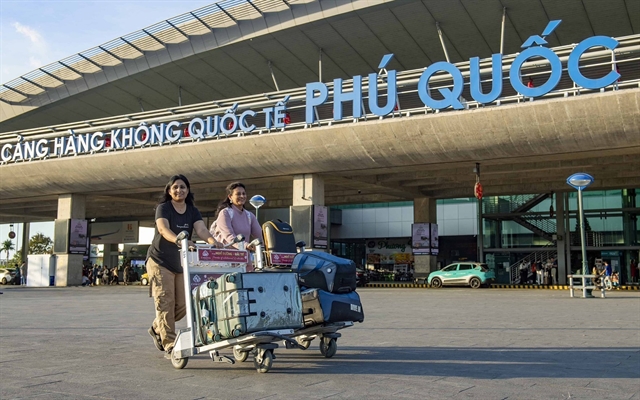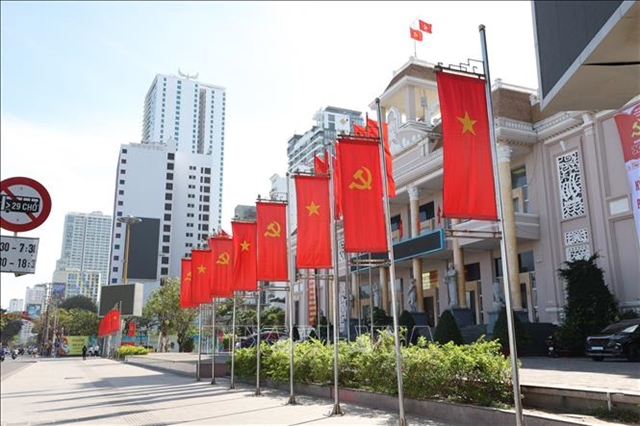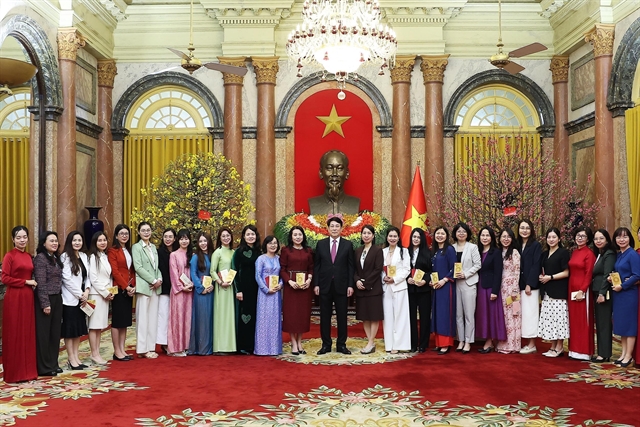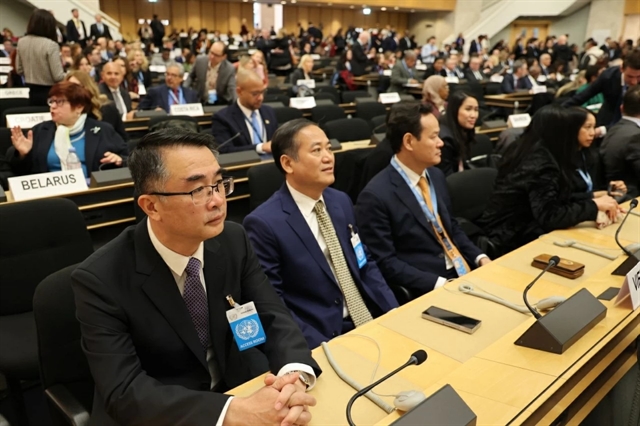 Economy
Economy

The Ministry of Industry and Trade (MoIT) is considered a ministry that has made significant improvements in its administrative procedure reform over the past few years. This year, the ministry plans to continue removing barriers for the business community. Minister Trần Tuấn Anh speaks to Vietnam News Agency on the issue.
 |
| Minister of Industry and Trade Trần Tuấn Anh |
The Ministry of Industry and Trade (MoIT) is considered a ministry that has made significant improvements in its administrative procedure reform over the past few years.
This year, the ministry plans to continue removing barriers for the business community. Minister Trần Tuấn Anh speaks to Vietnam News Agency on the issue.
Việt Nam’s deeper integration with the world economy means that countries will enhance the application of commercial and technical barriers. What solutions will the ministry come up with to facilitate local businesses’ development?
It should be said that the trend of applying trade protection and technical barriers has become popular. These have been applied to all countries, not just Việt Nam.
However, Việt Nam has special meaning since it is a developing country with limited ability in production.
Particularly, in the context of deeper integration with a range of new free trade agreements (FTAs), the challenges for Việt Nam are huge.
Local businesses could enjoy favourable conditions in tariffs and technical process to access new markets. However, the technical barriers would not be simple, especially for agriculture, seafood and food products, which have garnered high attention from foreign markets.
It is the reason many projects have been planned, such as sustainable exports by 2020 to provide solutions for the country’s exports.
The economy’s restructuring and renewing of its growth model have been extremely important. The increase of investment effectiveness and products’ added value, especially through hi-tech content, would meet requirements from imported markets.
The ministry would continue to complete its legal framework and business environment to help domestic firms better exploit resources for their development.
Several experts say Vietnamese retailers will have to face imbalanced competition with foreign companies. Resolution No 35/NQ-CP asked the ministry to pay attention to developing a retail system, promoting production and encouraging the use of Vietnamese goods. What are your measures to promote development of the local retail market while following international commitments?
The local market has always been defined, reflecting its important role in the country’s socio-economic development.
The target to develop the domestic market in general and the retail market in particular is being paid significant attention. It is considered as an integrated task through different development periods in the upcoming years.
I think the government should have a clear strategy for the sustainable development of the retail market in the integration process. In addition, local producers should concentrate on improving their production ability to provide high quality products at reasonable prices.
These will be sufficient conditions for sustainable development of the country’s retail market, which can compete with foreign firms and products.
The ministry in cooperation with relevant ministries has striven to review, build and adjust regulations and policies related to production and trading to remove difficulties for businesses.
Can you provide the specific targets for restructuring and administrative procedure reform of the industry and trade sector this year?
The restructuring plan of the industry and trade sector is aimed at promoting a shift in the economy’s structure, improving quality of growth, productivity and competitiveness.
In addition, the plan would involve a study to renew the sector’s model and organisation to meet with the socio-economic development demand, thus serving industrialisation and modernisation needs.
The restructuring will be implemented in the sectors of industry, energy, trade and international economic integration, of which the ministry will develop prioritised industries toward high-added value sectors and high export value.
In addition, we would also create a market for the development of support industries, using hi-tech, creating jobs with qualified professionals and reducing sectors using high natural resources.
The ministry would continue to promote diversifying export markets and strengthening and expanding the market share of Vietnamese goods in its traditional markets such as Russia and East Europe.
On the other hand, we would also use the opportunities to create a breakthrough to expand potential export markets, including India, other South Asian countries, Africa, Middle East and the United States. The ministry would give priority to exploiting key and strategic export markets, such as the United States, Japan, China, European Union, as well as ASEAN and Australia.
MoIT would also focus on trade promotion activities to seek new markets for Vietnamese agricultural and fruit products. We would better take advantage of tax cuts and reductions to promote export to markets with which Việt Nam has signed FTAs.
The ministry has targeted to diversify the import market, especially imported material for production to gradually improve trade balance at markets in which Việt Nam reported trade deficit.
In particular, the ministry would enhance checks on imported products, in addition to using technical barriers to limit imports.
Regional planning is considered one of the good factors to develop the sector. How will the planning be paid attention to and adjusted this year?
We learnt many real lessons over the past few years on building and developing planning.
However, the most important lesson on renewing management and operation was achieved by the Ministry of Planning and Investment.
I hope this can create a foundation for quality and sustainability in planning in the future.
However, I think State management agencies have an important role in ensuring that planning is completed and effectively organised.
Most important is the need for a legal mechanism to create conditions to release social resources in private, foreign firms and others, not only State-owned enterprises. We should have an equal competitive environment for all economic components.
Moreover, the planning should be made available for all and should also be linked to a legal framework related to State management. — VNS




